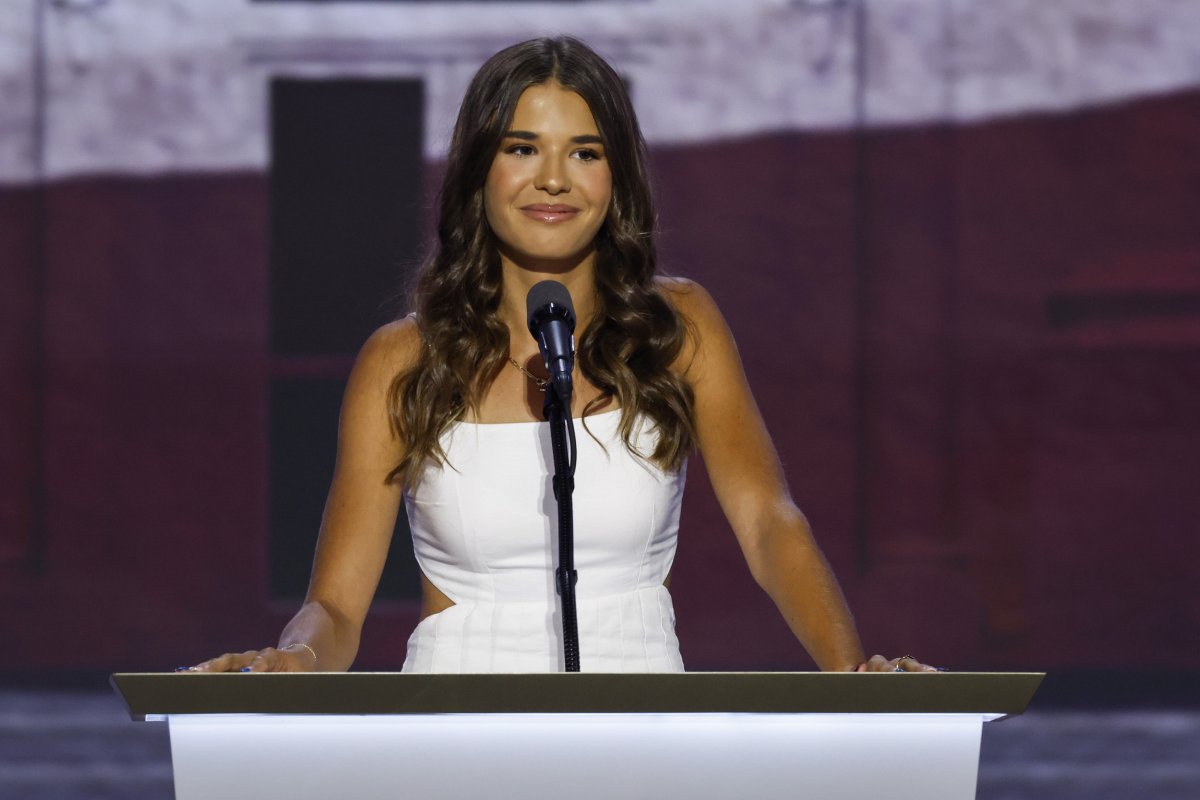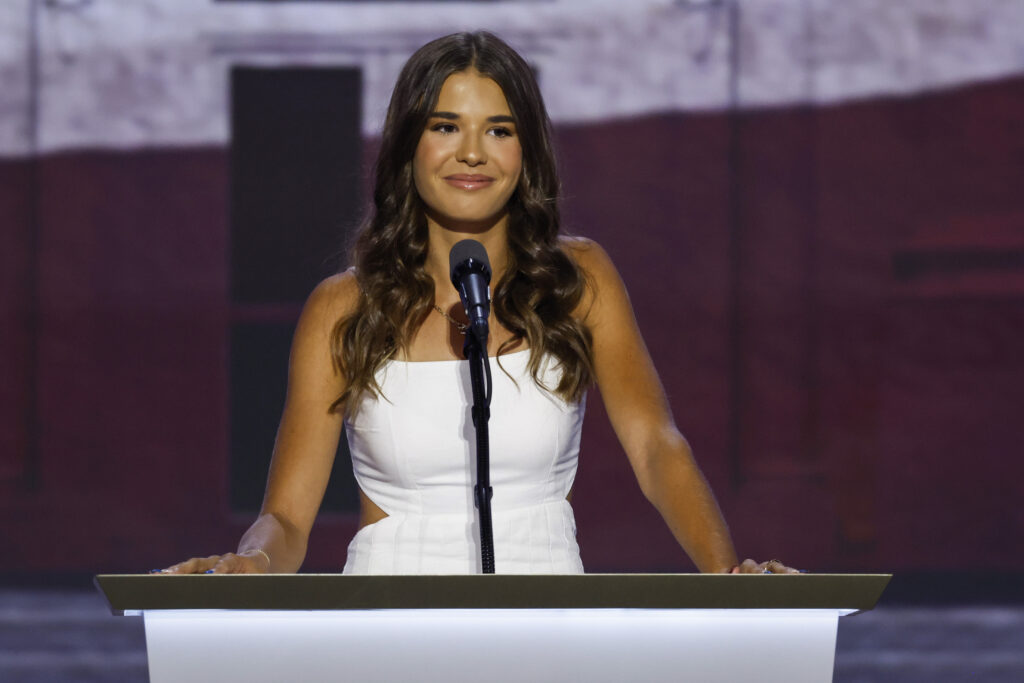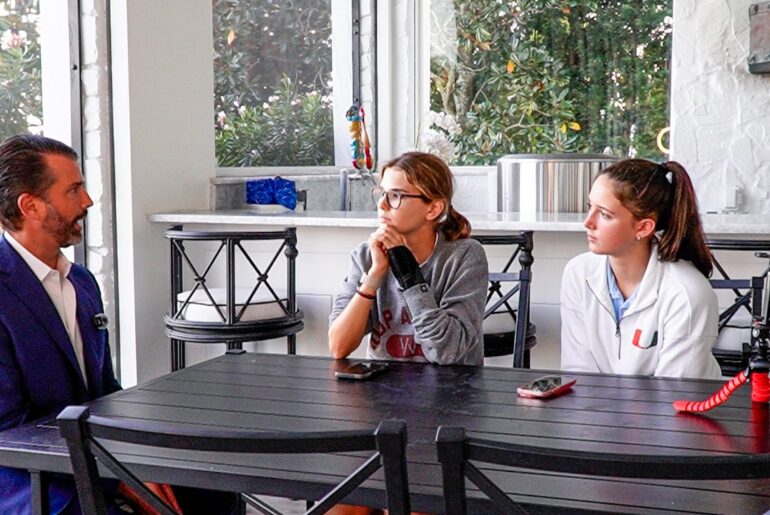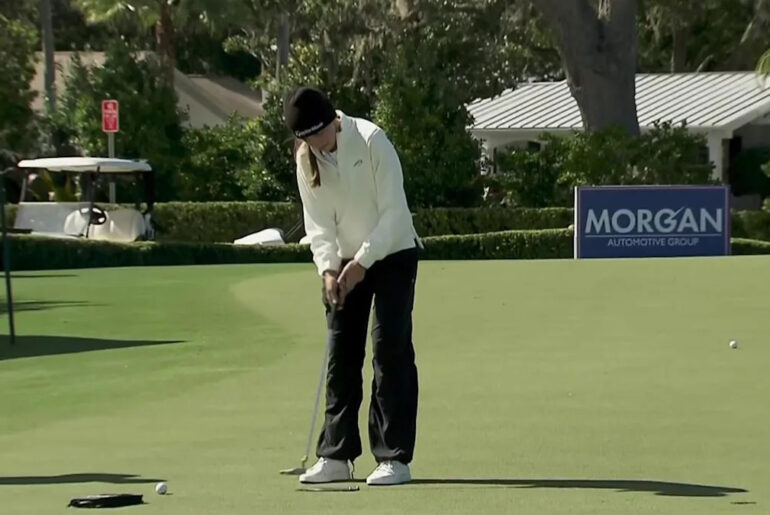Kai Trump’s social media is skyrocketing after her grandfather’s reelection.
Before President Donald Trump’s 2024 victory, his eldest granddaughter had just 63,000 subscribers on YouTube. As of Friday, Kai Trump now has 861,000 subscribers—a figure more than 13 times what it was before the election. Her most recent vlog, “My grandpa became the president again,” has racked up 2.4 million views.
Kai’s internet stardom comes as the younger Trump generation has emerged as a critical bridge between the president and younger voters. In November, Trump picked up a larger proportion of voters under 30 than any Republican presidential candidate since 2008. His youngest son, Barron Trump, a freshman at New York University, was largely credited with the podcast strategy that helped Trump win large swaths of young men.
“We saw an unprecedented influence of Gen Z in the recent presidential election, and we will continue to see it in politics and future elections as Gen Z children and grandchildren of candidates exert their influence,” Mark Beal, a communication professor at Rutgers University and public relations practitioner known as “the Gen Z expert,” told Newsweek.
“At 18 years old, Barron served as his father’s unofficial podcast adviser and for the first time in 2024, appearances on podcasts by candidates like Trump played a role in influencing voters including Gen Z voters,” Beal said. “Kai Trump at 17 years old and not yet eligible to vote, with 2.5 million followers on TikTok and 1.4 million on Instagram, is a Gen Z President Trump influencer.”

Kai Trump speaks on stage on the third day of the Republican National Convention at the Fiserv Forum on July 17, 2024 in Milwaukee, Wisconsin.
Kai Trump speaks on stage on the third day of the Republican National Convention at the Fiserv Forum on July 17, 2024 in Milwaukee, Wisconsin.
Chip Somodevilla/Getty Images
Kai only began posting on YouTube three months ago, when she launched her page with, “A Regular Day in the Life of Kai Trump.” The 12-minute video follows the teen as she picks up her Starbucks order, trains at the gym, goes grocery shopping, golfs and gets ready for her high school homecoming.
“Her content across golf and everyday life offers a glimpse into another side of the president and humanizes her grandfather,” Beal said.
Although it was widely known that Donald Trump had multiple grandchildren during his first term, Kai did not step into the national spotlight until this past summer when she spoke at the National Republican Convention in Milwaukee, Wisconsin. During her remarks, which focused on their personal relationship, Kai called Donald “just a normal grandpa.”
“He gives us candy and soda when our parents are not looking. He always wants to know how we’re doing in school,” Kai told GOP delegates.
Her speech was largely seen as a wider campaign strategy to paint the Republican candidate as a family man and loving grandfather. Almost everyone in the Trump clan appeared on the convention stage alongside him.
Two months after the convention, Trump began making stops at Barron’s favorite podcasts, appearing for interviews or social media posts with the likes of Theo Von, the Paul brothers, the Nelk Boys and to cap them all off, Joe Rogan.
Those appearances—combined with the social media following his granddaughter was slowly building in the background—became a way for the Trump campaign to tap into newer forms of media. His team successfully found an opportunity for him to speak directly to younger voters with the help of their most popular content creators and influencers.
Melissa Deckman, the author of The Politics of Generation Z: How the Youngest Voters Will Shape Our Democracy, told Newsweek it was not just a smart move because these were platforms with predominantly younger audiences. It was smart because these platforms are not primarily politics. It allowed Donald Trump to be heard in the “unfiltered, less scripted, and conversational tone that Gen Z often craves.”
“Kai Trump’s YouTube series, for instance, spends more time on fashion and food, but still manages to score political points. Her recent behind-the-scenes look at the inauguration, for instance, thanked her ‘grandpa’ for saving TikTok,” Deckman said.
“These platforms allow for direct access to younger audiences who may not know much about politics, while allowing the younger generation of the Trump family to sprinkle political topics that, of course, support the president,” she said. “They lend the air of authenticity without the inconvenience of fact-checking that is often done by legacy media.”
On Monday, as the Trump patriarch was sworn into office again, it wasn’t any of the older Trump kids who made headlines. It was Kai and Barron.
Barron went viral for towering over his six-foot-three father, for shaking hands with outgoing President Joe Biden and Vice President Kamala Harris and for photobombing his older sisters. When the president introduced his youngest child, Barron played to the crowd, putting a hand behind his ear as the crowd went wild for him.
Likewise, Kai, who was dressed in a sparkly Sherri Hill beaded gown, captured many Americans as she danced with her father, Donald Trump Jr., at the inaugural ball
It’s not only younger Trumps who can help the Republican ticket this way. Beal pointed out that in four years—when Trump’s presidency will be up—Vice President JD Vance’s oldest child will be 11.
“He could serve as a Gen Alpha influencer in 2028 and 2032,” Beal said. “The influence of Gen Z and Gen Alpha will continue to increase significantly in politics over the next decade and beyond. That influence will begin with the children and grandchildren of politicians who will run for office in the future.”
Deckman added, “The 2024 election, and the high-profile of this younger generation of Trumps at the start of his presidency, showcases a more innate understanding of new media by the Trump team.”







